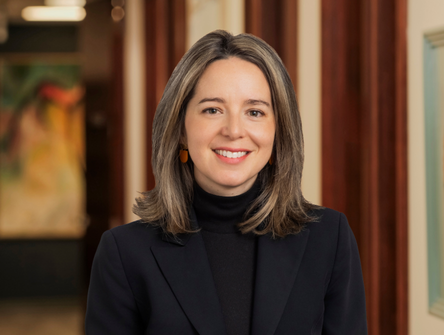How long of a delay?
It's an open question whether Canada will ever be ready to expand assisted dying to cases solely based on psychiatric disorders.

For now, it appears Canadians will have to wait, at least until after the next election cycle, but the word from the Minister of Justice is that it will happen.
"There's nothing more consequential or significant than deciding the context, circumstances, and timing of someone's passing," Virani said in a recent CBA National podcast interview. "That is, by definition, a decision that you cannot return from. So we're going to make absolutely certain that we're ready to do it in a manner that's appropriate."
The Trudeau government has hurried passage of Bill C-62, which aims to delay the expansion for another three years, through the House of Commons and is trying to get it through the Senate. A first extension was voted last year to allow enough time for provincial healthcare systems to get ready.
The extension has split opinion. Former Senator James Cowan, the past chair of Dying With Dignity, says the idea behind the initial delay "was to get a list of things done."
Now, the government is claiming the system still isn't ready, but it's unclear to Cowan what that means. Under the division of powers, the provinces should decide how to deliver the services and whether or not to provide them, he adds. The federal government's role should be limited to amending the Criminal Code.
Ultimately, Cowan says, it all amounts to a clear Charter breach. "How can you characterize this any other way than to say we don't think people with mental illness are competent to make a decision on their own?"
University of New Brunswick law professor Kerri Froc opposes the expansion because gendered circumstances risk contributing to women disproportionately requesting MAiD for psychiatric disorders.
"The question might be, 'Why is that?'" says Froc. "If we don't have a good theory of why, we should pause and take a look at that."
Froc supported a proposed resolution defeated earlier this month at the Canadian Bar Association's annual general meeting that would have revised its position on making MAiD available to people whose sole underlying medical condition is a mental illness. Specifically, Froc has raised concerns that the expansion could have a disproportionate, gendered impact and risks violating s. 15 of the Charter.
She also worries there is a similar breakdown for MAiD requests in Canada for non-terminal conditions that tracks, according to some researchers, the gender paradox of more women attempting suicide while more men complete it. The concern is suicide completion rates among women will be higher because of MAiD.
Senator Stan Kutcher, who was a practising clinical psychologist for over 35 years, dismisses the argument as a syllogistic fallacy.
"It says all MAiD provisions are personally-initiated deaths, all suicides are personally-initiated deaths, therefore MAiD is suicide," Kutcher says. We can't equate someone who chooses to end their life due to mental illness to a kamikaze pilot or a suicide bomber, he explains. "They're not the same thing as all, but people have deliberately obfuscated with MAiD because it's an emotional appeal."
Meanwhile, many disability rights groups continue to raise concerns about MAiD's expansion, including what they view as a lack of consultation and understanding of their lived experience.
"Things came to a head with the extension to mental illness just because there's no evidence-based policy making there," Froc says. According to a study she cites, a psychiatrist has less than a 50-50 chance of being right when projecting that someone with treatment-resistant depression will get better.
Kutcher counters that this line of thinking imposes a higher standard for MAiD for psychiatric disorders than it does for any other condition, which amounts to discrimination.
"In medicine, irremediability has to do with the ability to predict," Kutcher says. "For any individual patient, I cannot predict with 100 percent certainty your prognosis for anything." What's more, consensus in medicine is a near-impossibility, so taking the argument to its logical conclusion would mean we shouldn't let anybody access MAiD.
"The argument that we have to hold MAiD hostage because there's no consensus is not only irrational, but it's discriminatory," Kutcher says.
According to Froc, however, the reasoning in Carter, the Supreme Court of Canada decision which struck down the Criminal Code prohibitions against physician-assisted suicide, doesn't map onto mental illness.
"There are also issues with framing this as an equality rights issue when the very equality-seeking community says that this is going to communicate a devaluation of our lives," Froc says. "There's no neutral position here. The state is either protecting vulnerable people using the criminal law in the case of the feds, or they're providing those services."
For his part, Kutcher points to the limited eligibility criteria to receive MAiD for psychiatric disorders. "We are talking about a tiny group of people," he says. "There has been a disinformation campaign by the opponents who say that you can walk off the street and get MAiD because you're feeling low—that's complete nonsense," Kutcher adds.
Kutcher is also critical of the joint committee process put in place to study Canada's readiness for the expansion. He was among a group who dissented from the main report, tabled this month.
He says that once the federal government's criteria are met, there should be confidence to amend the Criminal Code and allow the sunset clause on delaying expansion to take effect. "The committee did not study those criteria. They heard testimony from experts that everything had been done as the federal government had expected, and the committee completely discounted their testimony on the basis of three physicians who argued on their own idiosyncratic criteria of readiness."
The committee also heard that some provinces are prepared for the expansion, which is why Kutcher disputes claims that provinces were "unanimous" in warning Ottawa they weren't ready. Still, last month, health ministers from British Columbia, Alberta, Saskatchewan, Ontario, New Brunswick, Prince Edward Island, Nova Scotia, Nunavut, the Northwest Territories and Yukon asked Ottawa to postpone eligibility expansion indefinitely.
In his dissent to the joint committee report, Senator Pierre Dalphond called on the government to refer the matter directly to the Supreme Court of Canada as a "compassionate measure."
He says the Carter decision took four years to make its way through the courts on an expedited process. "It will take four or five years to go back to the Supreme Court if we leave it to a constitutional challenge," he says. "These people will suffer endlessly, and if they have been proven right, all of that suffering will have been unnecessary."
Dalphond adds that a direct reference could bypass any attempt by a government to rely on the courts to drag out a decision on expansion. A ruling from the Supreme Court could be expected within a year, before the next federal election.
"I don't like the balancing of saying, 'yes you have a right, but it's being denied because the system is faulty in some way, or because we need to protect you as a group'—it lacks the nuance that the law requires," Dalphond says. "The Supreme Court said in Carter that the system doesn't have to be perfect."
Dalphond admitted that he is still deciding how to vote on Bill C-62 once it reaches the Senate.
For her part, Froc cautions the CBA to avoid overstating the case when analyzing the Charter implications of the MAiD extension.
"I'm not an evangelist that says that it should be never—I tend to see the data and see that there are really huge hurdles to overcome in terms of developing criteria, but we certainly don't have it now," Froc says.
Cheryl Milne, a member of the CBA's End-of-Life Working Group, opposed the resolution revising the CBA's position.
"The [initial] resolution that the CBA passed in 2016 was a really reasonable one, and it allows the End-of-Life Working Group to go forward and advocate on behalf of people with psychiatric disorders.
"It's a very small number who would be able to access MAiD, but it protects their autonomy to make decisions based on capacity."
Milne adds that the Supreme Court did a disservice by not ruling on Section 15 issues in Carter, because it left open questions about equality rights.
"A reference on this could be helpful," Milne says. "A three-year wait, given there already has been a long wait and that there have been many expert reports that have said the government should move forward on this, is a little long. There will be people suffering in the interim."


